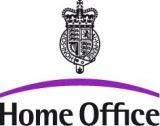
Experts from industry and academia are being invited to provide groundbreaking innovations to help combat the threat of terrorism as part of the government’s Science and Technology Counter Terrorism Strategy launched today.
Scientists are being asked to come forward with state-of-the-art ideas that could be used to identify new threats and develop ways to counter the challenges we face from international terrorism.
The three-year Science and Technology Counter Terrorism Strategy published today aims to:
* Understand future threats and opportunities;
* Develop effective solutions; and
* Work with our international partners on counter terrorism-related science and technologyAlongside the strategy, a brochure has been produced for science and technology experts, to put them in touch with key contacts.
Science and technology play a key part in counter-terrorism, enhancing our ability to pursue terrorists, prevent radicalisation, protect essential services and infrastructure and prepare for a terrorist attack.
The government’s counter terrorism strategy (CONTEST) has identified that terrorists will continue to exploit modern technology, not only to plan and conduct attacks, but also to disseminate propaganda and recruit people to their cause. The report published today sets out what the government is already doing to counter terrorism through science and technology.
The strategy and accompanying brochure set out key challenges and invite commercial experts to get in touch to see if they can work towards meeting the operational needs of the wider counter-terrorism community as well as our traditional partners such as the police, military and security services.
Security Minister Lord West said:
“The UK currently faces a real and serious threat from terrorism and we need to utilise our position as a world leader in science and technology to counter this.
“We need to match products and ideas to problems, which is why we are actively inviting people to join us and share expertise.
“The UK is a leading innovator in the design and provision of defence and security solutions. British technology can have greater practical applications across the world and is just one more tool in our fight against those who would wish to do us harm.”
















